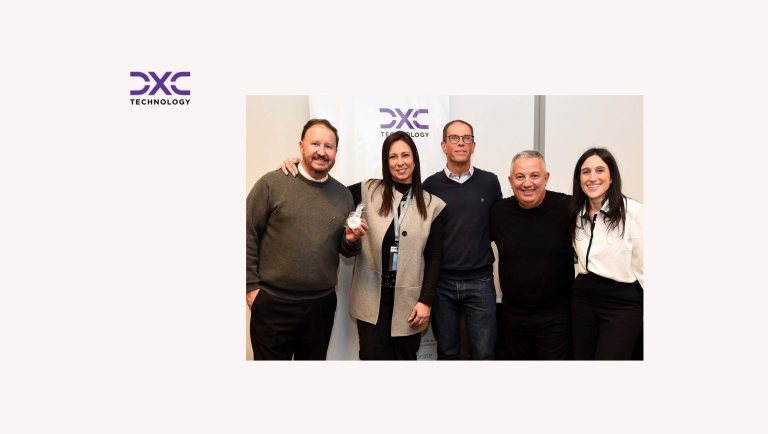One-Third of Business Leaders Lack Confidence in Customer Experience Proficiency Amid a Global Recession Threat, Budget Cuts and Labor Issues
Amidst the threat of a global recession and budget and talent management challenges, one-third of business leaders lack confidence in their organization’s ability to provide high-quality customer experiences. Additionally, more than 50 percent believe labor issues, budget cuts and/or pressure to reduce costs will have a negative impact on their customer engagement efforts this year.
Verint, The Customer Engagement Company, released its annual global research today examining the customer engagement challenges organizations face, and the strategies they are using to close the Engagement Capacity Gap™ (ECG) – the gap between customers’ expectations for service and an organization’s ability to fulfill them. The new study is based on a December 2022 survey of 2,875 business leaders across 13 countries.
While continuous and disruptive change still lingers as the effects of the pandemic continue to fade, this year’s survey found a two-tiered divide, with one group of respondents significantly more confident about their organization’s ability to provide the level of customer experience demanded by modern consumers.
Marketing Technology News: Jatheon Enterprise Data Archiving Wins “High Performer” Medal on G2
High Confidence Creates Resilience in Challenging Times
The research found a significant divide in confidence with 67 percent of respondents indicating they are “highly confident” about their organization’s ability to provide the level of experience demanded by modern consumers, and the remaining 33 percent indicating they were less confident in this capacity.
Highly confident leaders were 3.2 times more likely to be highly effective at engaging customers across digital channels, 2.9 times more likely to provide effective self-service options, 2.9 times more likely to have been highly effective in implementing or expanding their customer experience automation usage and 2.8 times more likely to be effective in leveraging customer feedback to improve customer experience during 2022.
Moreover, in the challenging business climate, organizations are doubling down on strategies and solutions to address the CX-Cost Equation™ – the need to deliver exceptional customer experiences while also lowering the cost to serve.
“Many business leaders believe their digital-first engagement, workforce management and quality and performance efforts have given them a sure footing to improve customer engagement and experience delivery. But the threat of a global recession, budget cuts and a challenging labor market are causing significant disruption,” says Verint’s Chief Marketing Officer, Celia Fleischaker.
“Organizations must leverage digital-first engagement and automation to meet customers where they are, allowing engagement at scale through a unified workforce of humans and bots. Streamlining talent management creates a more efficient hiring and onboarding process and sets up employees with the right tools to succeed.”
Marketing Technology News: MarTech Interview with Sterling Jackson, Head of Marketing at Aspire
Digital-First Engagement and Automation are Now the Gold Standard for Improving CX
The survey revealed that investment in solutions across multiple parts of an organization was key to having confidence in effective customer engagement. Organizations continue adoption of digital-first engagement solutions at scale, with a focus on the need to meet customers where they are on their channel of choice. In fact, 85 percent of highly confident leaders began using or expanded use of digital channels for interacting with customers over the last 12 months. Eighty-nine percent also cited their use or more extensive use of those digital engagement channels in improving customer experience has been highly effective.
A key aspect of solving the CX-Cost Equation is being able to scale interactions without drastically increasing budgets or reducing the quality of customer engagements. Forty-five percent of highly confident respondents currently share work between human employees and bots. And 72 percent of highly confident respondents indicated that utilization of chatbots and messaging channels has been extremely effective for them during the past two years. Fifty-six percent of highly confident leaders increased spending on messaging and social channels, while 54 percent increased budgets for chatbots and IVAs to improve efficiency and decisioning in 2022 compared to 2021.
Marketing Technology News: The Secret Sauce to Saving Marketing and Sales Resources: Intent Data
Methods to Safeguard Customer and Employee Experience
Labor challenges facing business leaders have worsened year-over-year, and talent management challenges abound, as respondents cite myriad issues including employee retention, coaching and mentoring, interviewing, skills training and supporting employee wellbeing.
In 2022, business leaders in the highly confident group targeted key areas to increase spending to improve their ability to provide exceptional CX. Quality/performance (57%), messaging and social channels (56%) and chatbots/IVAs (54%) were among the top three solutions where bigger budgets prevailed.
In relation to talent management, more than half of business leaders rated coaching and mentoring, supporting employee well-being and skills training as the top three talent management challenges in 2023.



















